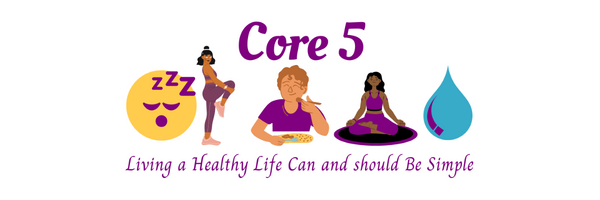How to get more sleep? That thing everybody claims to love yet most don’t get nearly enough. It’s easier said than done. To see how we can be one of the few who are successful with getting more sleep consistently, we must talk about time. It’s said that people overestimate what they can do in the short-term and underestimate what they can do in the long-term. This is pretty vague. Let’s make it less so.
Healthy change is hard and it requires patience. Patience is difficult, to put it mildly. It can be downright maddening and painful. Humans aren’t wired to think about the long-term. We are a species wired for survival. Our stress response evolved to allow us to survive from day to day, to escape dangers like saber-toothed cat predators. For the humans of tens of thousands of years ago, what good would thinking years ahead be if they didn’t survive the day?
Luckily for us, survival generally isn’t a big fear of ours from day-to-day anymore, but unluckily for us, we haven’t had nearly enough time as a species to adapt and evolve to the fast-paced changes of modern life. We still have our ancient survival mechanisms, which is why our body responds to a stress like a difficult conversation as if it were a serious threat that we need to get ready to fight or run from – tensed muscles, enhanced senses, a cloudy mind that keeps us from thinking about anything but surviving the next few minutes. Thinking years into the future just isn’t in our nature. It takes a lot of thoughtfulness. If we can develop this thoughtfulness, we can do our future selves some massive favors.
Getting more sleep – a practical approach
Let’s do a thought experiment. Say we have a working mom named Jessica who regularly gets drained by all her responsibilities – taking kids to school, a full-time job, taking care of the kids and cooking meals in the evening, trying to get her husband to do the dishes, seeing if she can squeeze in a few minutes for herself at night. She is currently getting about six hours of sleep a night and wants to increase to eight. She sets a goal of achieving this consistently by three months from now.
Three months is about 13 weeks, so Jessica calculates that increasing her sleep time by ten minutes each week will get her there. Perhaps she sets alarms at night to know when to get into bed, changing the alarm for ten minutes earlier each Sunday. In the short-term, Jessica barely even notices she’s making a change. When we zoom out over these 3 months, Jessica has reasonably easily achieved her sleep goal.
For those that think, “Three months just to get 2 more hours of sleep a night? Ten minutes a week? That’s a little silly, huh?” You’d be wrong. It’s not sad or lame – making changes, even small changes like these, are really hard for most people. Going faster greatly increases chances of discouragement and giving up. Very gradual is the way to go if you want life-long lasting results. If people tend to look at you weirdly for going too slow with healthy lifestyle changes, you’re probably in the winner’s club and achieving success where others aren’t. There’s no such thing as too slow.
A broad view of initial work vs lifelong benefits
Let’s go back to Jessica and zoom out further. She put in three months of work to make this change in her sleep. Depending on your perspective, three months can be a pretty long time. Though, three months is 1/40th of a decade. For every decade Jessica has in front of her, she’ll get 40 times as much time enjoying the health benefits than working for them because she decided to be thoughtful about the long-term. This is the power of change over time.
Time is a phenomenon that we don’t often think deeply about. Patience is hard, but using time is a massive area of opportunity to make significant, lasting results without needing to work very hard. All Jessica had to do was adjust her alarm at night by ten minutes once a week. There was certainly some struggle for her, maybe wanting to stay up to finish a TV show, though going to bed ten minutes earlier isn’t nearly a shock like two hours would be. It’s difficult to get past the “get results quick” mindset, but we’ll save our future selves so much time and effort if we do. For more on this, see my article on Comfortable Lifestyle Change.
We must be realistic with ourselves
Our fictional friend Jessica was a working mom, so maybe getting this full two hours more sleep wouldn’t be realistic. After all, she does have a lot on her plate. She probably encountered some inconveniences in needing to shift her evening responsibilities, maybe getting her husband to do more to support her goal. Perhaps she only achieved one hour more each night. Some progress is always better than none. We all must be honest with ourselves with what could be realistic for our own lives as it will be different for everyone. Sometimes we will experiment with a change like this, it turns out not to be realistic for us, and we’ll have to stop. This isn’t giving up, and it’s not failure. In this scenario, we learn something about ourselves, and that is a win in itself because greater self-awareness will increase our future chances of success. The downsides are spending time on an experiment that teaches us about ourselves; the upsides are massive health benefits that leak into all aspects of our lives.

